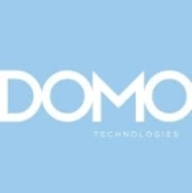

Domo and Talend Open Studio compete in the data integration and business intelligence category. Domo seems to have the upper hand in ease of use and business-oriented features, while Talend is preferred for its open-source flexibility and customization suitable for developers.
Features: Domo focuses on user-friendly dashboard creation, drag-and-drop data management, and extensive pre-built connectors. Talend Open Studio shines with its open-source nature, powerful ETL capabilities, and a wide array of integration options.
Room for Improvement: Domo users wish for enhanced visualization customizations, improved ETL functions, and better real-time data capabilities. Talend users desire a simpler user interface, better documentation, and advanced error handling features.
Ease of Deployment and Customer Service: Domo is suitable for cloud environments and has a strong support community, though opinions on customer service are mixed. Talend integrates well with on-premises and private cloud setups, relying heavily on community support due to limited initial setup assistance.
Pricing and ROI: Domo's pricing is viewed as high but justified by its comprehensive features, offering a good ROI through operational efficiency. Talend Open Studio is cost-effective with its free community edition but can become expensive with additional features.
If you're actually using Domo at a very limited case and you're being charged $20,000, we've seen ROI there, but once it goes really high, you really need to check your metrics and check your profit.
They were quite professional and in around three to five working days, they had identified where they suspected there was an issue and I was able to fix it.
It's very easy to get technical support from Domo.
Support-wise, they are good.
The fact that you're able to easily identify the pipelines or flows that have errors, and it notifies you when you're building a pipeline where you can run previews and tell where to fix issues, is helpful.
When fetching files larger than 100 MB from SFTP or any other portal, Domo becomes slow due to the heavy file size.
Sigma, which is written for Snowflake, scales more easily than Domo.
In recent years, I haven't had such cases. It's quite stable and I don't have any reservations on its stability.
In terms of overall stability of the platform, it's very stable.
During that time, we faced issues from the project side as Domo was not visible in our portal.
End users require a license to run their own reports and dashboards, which are fairly expensive.
Some technical aspects such as Beast Mode calculation could be improved in Domo, as it would provide more clarity and help in giving insights to clients or customer business team requirements.
One of the areas where we've had frustrations with Domo is the aesthetics. The aesthetics are quite limited compared to other BI tools such as Tableau and Power BI.
If we could have round-the-clock support, we would be able to resolve many issues which we encounter during the development part.
Domo's pricing is high compared to other BI tools, and it is costly.
For long-time users, it can become expensive, but the trade-off is access to the entire platform instead of licensing different components separately.
They quoted approximately one dollar per KB.
App Studio is valuable because it allows all the customization we needed; we can decode it, with the view and grid which are all I need, drill-downs, and everything can be done the way I need it.
I have been using it for four years and have been able to extract the information I need from it.
The most valuable feature of Domo is the fact that you can connect multiple inputs and you don't have to have a data warehouse.
It also comes with a console which helps us to monitor the jobs we have built in, making that monitoring part easy.
| Product | Market Share (%) |
|---|---|
| Talend Open Studio | 3.2% |
| Domo | 0.7% |
| Other | 96.1% |


| Company Size | Count |
|---|---|
| Small Business | 16 |
| Midsize Enterprise | 11 |
| Large Enterprise | 20 |
| Company Size | Count |
|---|---|
| Small Business | 22 |
| Midsize Enterprise | 13 |
| Large Enterprise | 18 |
Domo is a cloud-based, mobile-first BI platform that helps companies drive more value from their data by helping organizations better integrate, interpret and use data to drive timely decision making and action across the business. The Domo platform enhances existing data warehouse and BI tools and allows users to build custom apps, automate data pipelines, and make data science accessible for anyone through automated insights that can be shared with internal or external stakeholders.
Find more information on The Business Cloud Here.
Talend Open Studio is a free, open source ETL tool for data integration and Big Data. The solution enables you to extract diverse datasets and normalize and transform them into a consistent format which can be loaded into a number of third-party databases and applications.
Talend Open Studio Features
Talend Open Studio has many valuable key features. Some of the most useful ones include:
Talend Open Studio Benefits
There are several benefits to implementing Talend Open Studio. Some of the biggest advantages the solution offers include:
Reviews from Real Users
Below are some reviews and helpful feedback written by PeerSpot users currently using the Talend Open Studio solution.
Elio B., Data Integration Specialist/CTO at Asset messages, says, "The solution has a good balance between automated items and the ability for a developer to integrate and extend what he needs. Other competing tools do not offer the same grade of flexibility when you need to go beyond what is provided by the tool. Talend, on the other hand, allows you to expand very easily."
A Practice Head, Analytics at a tech services company mentions, “The data integration aspect of the solution is excellent. The product's data preparation features are very good. There's very useful data stewardship within the product. From a technical standpoint, the solution itself is pretty good. There are very good pre-built connectors in Talend, which is good for many clients or businesses, as, in most cases, companies are dealing with multiple data sources from multiple technologies. That is where a tool like Talend is extremely helpful.”
Prerna T., Senior System Executive at a tech services company, comments, “The best thing I have found with Talend Open Studio is their major support for the lookups. With Salesforce, when we want to relate our child objects to their parent object, we need to create them via IDs. Then the upsert operation, which will allow you to relate a child object to the event, will have an external ID. That is the best thing which keeps it very sorted. I like that.”
An Implementation Specialist, Individual Contributor at a computer software company, states, “I can connect with different databases such as Oracle Database or SQL Server. It allows you to extract the data from one database to another. I can structure the data by filtering and mapping the fields.” He also adds, “It is very user-friendly. You need to know the basics of SQL development or SQL queries, and you can use this tool.”
PeerSpot user Badrakh V., Information System Architect at Astvision, explains, "The most valuable features are the ETL tools."
We monitor all Data Integration reviews to prevent fraudulent reviews and keep review quality high. We do not post reviews by company employees or direct competitors. We validate each review for authenticity via cross-reference with LinkedIn, and personal follow-up with the reviewer when necessary.